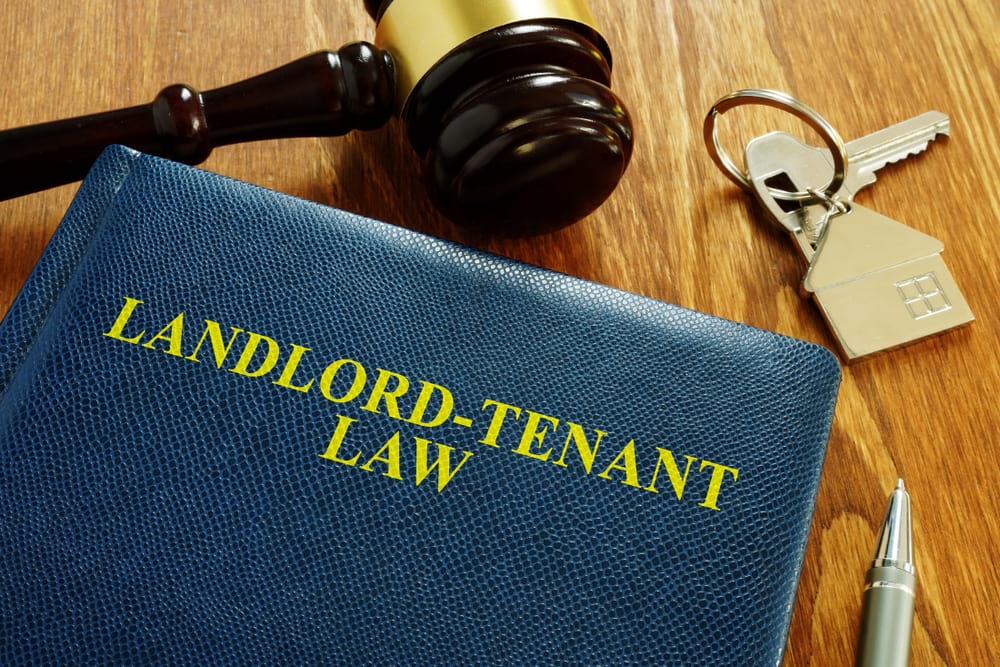Whilst moving house with pets can be stressful, renters have an added level of uncertainty.
Only 7% of rental properties are pet-friendly, despite the demand for housing.
But can landlords refuse pets?
This article will answer that question and explore associated policies.
Can landlords refuse pets on their property?

The short answer is yes – landlords can refuse pets.
However, there are some critical caveats…
Under the UK’s Housing Act 1988, landlords can include a “no pets” clause in their tenancy agreements.
This means they can refuse to rent their property to anyone with a pet or require tenants to remove their pets before moving in.
However, there are cases where tenants can challenge this clause. For example, if a disabled tenant requires a service animal.
Is the tide against pets in rented accommodation turning?

In recent years, there has been a growing trend towards pet-friendly housing.
Landlords are increasingly marketing their properties as suitable for pets.
In 2021, the UK government introduced a new model of tenancy agreements. These make it easier for renters with pets to find suitable homes.
These agreements include a standard clause that allows tenants to keep pets with the landlord’s written consent.
However, it’s worth noting that this clause is optional, so not all landlords will include it in their tenancy agreements.
Additionally, some landlords may still be wary of allowing pets due to concerns over damage to the property or disturbance to neighbours.
In these cases, landlords may require a higher deposit or additional clauses in the tenancy agreement to protect themselves.
The Renters (Reform) Bill
The Renters (Reform) Bill was introduced to the UK Parliment in May 2023.
The bill will allow tenants to request a pet, which the landlord must consider and not unreasonably refuse. If they want to refuse, they must be able to provide a good reason.
Which pets are most commonly allowed?

Dogs and cats are by far the most popular pets in the UK and the most commonly allowed by landlords.
Other popular pets often allowed by landlords include small mammals such as hamsters, guinea pigs, and rabbits.
These pets are relatively low maintenance and don’t require a lot of space, making them a popular choice for renters (and landlords).
Landlords also commonly allow fish and birds, as they are quiet and do not damage property.
However, it’s worth noting that some landlords may have specific requirements for fish tanks or bird cages. This might include ensuring they are adequately secured and unlikely to cause damage.
On the other hand, some pets may be more difficult to rent with. For example, many landlords will be unfamiliar with reptiles’ risk profile, care requirements, etc.
Why might a landlord refuse pets?
Landlords have several common objections to their tenants having pets.
One of the most common concerns is the potential for damage to the property. Data backs up this worry: 80% of landlords report having had properties damaged by pets.
This damage can include scratched floors, chewed furniture, and stained carpets.
Landlords may also be concerned about potential noise complaints from neighbours.
Finally, landlords may be concerned about their liability if a pet were to injure someone on the property.
(While pet owners would generally be responsible for this, landlords may still be liable if they are found to have knowingly allowed a dangerous animal on the property.)
What specific criteria do landlords use to determine whether to grant or refuse consent for pets?
When landlords consider whether to grant or refuse consent for pets in rental properties, various factors often influence their decisions.
Typically, landlords may evaluate the potential for property damage, noise disturbances, and the pet’s size and breed to assess the risk and impact on the property and neighbours.
They might also consider the tenant’s history of pet ownership and their ability to care for the pet within the property’s confines responsibly.
Are there any specific breeds or types of pets that are more commonly accepted or refused by landlords?
Landlords often have preferences regarding the acceptance of specific breeds or types of pets based on the perceived risk and maintenance associated with the animal.
Generally, smaller pets like cats, small dog breeds, and aquarium fish are more readily accepted as they are less likely to cause damage or disturbances.
In contrast, larger dogs, mainly breeds perceived as aggressive or exotic pets that require special care, are more commonly refused due to concerns over safety, potential for property damage, and higher maintenance needs.
What can I do if my landlord refuses pets?
1. Know your rights
First, it’s essential to understand your rights as a tenant. While many landlords may include a “no pets” clause in their tenancy agreement, this may not always be legally enforceable.
2. Legal action
In some cases, tenants have successfully challenged such clauses in court.
They have done this by arguing that the landlord has unfairly restricted their right to enjoy their home. Or that the landlord has discriminated against them because of their disabilities (in the case of tenants who need service animals).
However, this can be a complex legal issue, and seeking professional legal advice is essential before taking action.
3. Negotiate
Assuming that your landlord’s refusal to allow pets is legally enforceable, there are still some steps you can take to try and change your mind.
One option is to offer to pay a higher deposit to cover any potential damage caused by your pet.
You could also offer to have your pet undergo obedience training or provide references from previous landlords to demonstrate that you are a responsible pet owner.
Another option is to suggest a trial period to show how your pet behaves on the property.
This could involve a short-term lease with a clause that allows either party to terminate the agreement if there are any issues.
What are the typical costs or deposits for tenants wishing to keep pets in their rented properties?
Landlords may require a higher security deposit to cover potential damages caused by pets.
Some might also charge additional monthly fees to accommodate the pet, reflecting increased wear and tear or insurance costs.
The exact costs or deposits can depend on the landlord’s policies, the type of pet, and local rental market conditions.
These financial arrangements are typically negotiated as part of the rental agreement process, with the specifics agreed upon by the landlord and tenant.
4. Find somewhere else
If the landlord remains steadfast in refusing to allow pets, consider finding a more pet-friendly property.
While few pet-friendly properties are on the market, they are becoming more common.
Sell your tenanted property with We Buy Any Home.
We Buy Any Home are chain-free cash house buyers who can purchase your property up-front and quickly, without hassle or stress. You are in the perfect place for selling a property with tenants still in it.
Using our funds, we will purchase your property at a set price by your chosen date and fully manage it from beginning to end.
Fill in our enquiry form below if you want a cash offer for your house.



















